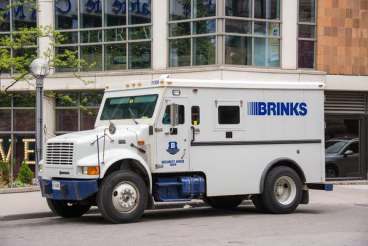The anonymity of a land trust
When people are getting started in real estate investing, they often assume they need to form an entity like an LLC or an S Corp first thing. The two main reasons for this are to protect their assets from lawsuit and to take advantage of certain tax breaks.
In my opinion, due to formation and maintenance costs, neither of these entities are necessary for beginner investors. If you aren’t doing enough business to utilize the tax advantages, those benefits are moot, and if you have no assets, there’s nothing to protect.
But there’s a third entity you should consider. It offers you protection and costs very little to form. It’s called a land trust.

In order to explain a land trusts, I’m going to ask you to picture the armored cars that pick up bank deposits. Armored cars are designed to securely move and protect things of value. They have super-thick walls that make it nearly impossible for would-be thieves to see what’s inside.
Now, an armored car needs a driver and a dispatch operator to tell the driver where to go and what to do. In the same way, a land trust needs individuals in place to perform similar tasks.
The driver of the land trust is called the trustee. He is charged with making sure the normal business of owning a property is carried out, and he does so at the direction of his dispatch operator.
The dispatch operator of a land trust is called the beneficiary. They’re the ones who direct the trustee where to go and what to do with the property on everything from buying, selling and even taking out a mortgage on the property.

The beneficiary has a perk to their job: They get to enjoy the benefits of whatever valuables are hidden inside the trust. If a rental property is in there, that means they get to enjoy the cash flow and tax advantages associated with the property.
The thing that gives a land trust its armor is the anonymity associated with it. Both LLCs and S Corps require you to register the entity and its officers with the Secretary of State, and that registration is on public record for anyone who wants to look. Once someone finds the entity, they can then determine what assets belong to it. This is what pro bono lawyers do when they’re deciding if they’ll take a lawsuit case.
Land trusts, on the other hand, are a paper entity. That means information about the trustee, what properties are held in the trust and the identities of its beneficiaries are all private information. And just like the armored car, once your rental property is placed securely within the walls of a land trust, no would-be thief will be able to see that it’s in there. And the only thing of public record is the deed that titles the property over to the trust.
On that deed, you can see the trustee, the land trust’s name and the legal description of the property. But to search the public property records, you often have to do so by name. And since each land trust has a different name, even if they have the same trustee, it makes it nearly impossible to link multiple properties to other land trusts.
This anonymity is a massive line of defense. Without knowing who you are or if you have any assets, a pro bono lawyer is not going to waste their time coming after you. And that protection only costs the recording fee to deed the property into a trust.

John D. Rockefeller said, “Own nothing, but control everything” and that’s what makes land trusts so great for protecting your assets.
If you would like to learn more about how land trust work, and even how to set one up for yourself, Dyches Boddiford will be teaching his two-day course on the subject Aug. 17-18 in Atlanta, Georgia. I highly recommend this class. It costs less than $600, and when you’re done, you’ll be ready to set up your very first trust. Plus, you’ll come home with Dyches’s manual that is so comprehensive that reading it will be basically taking the class again.
To register, go to assets101.com and click on the events tab. Or call Kay at 404-492-6009. I’ll see you there.
Joe and Ashley English buy houses and mobile homes in Northwest Georgia. For more information or to ask a question, go to www.cashflowwithjoe.com or call Joe at 678-986-6813.
